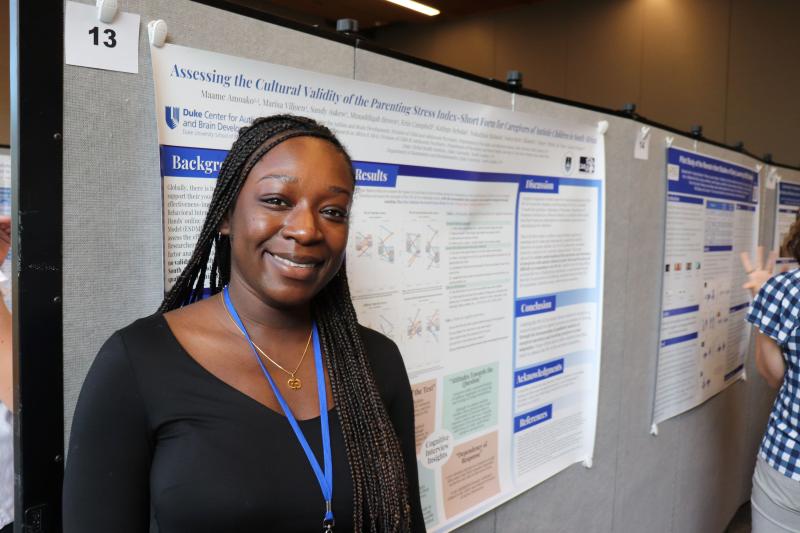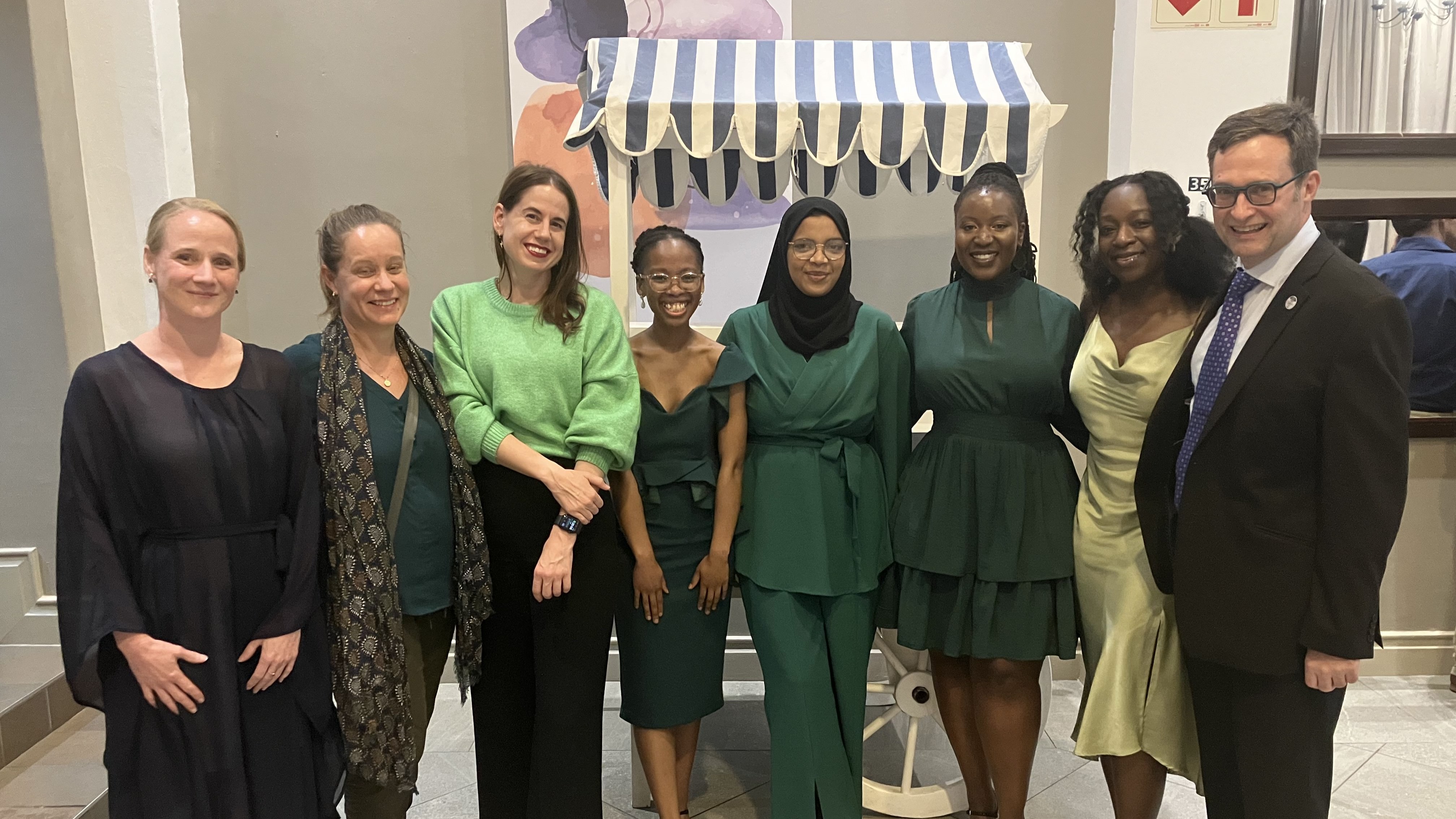
The unique Third Year curriculum at Duke University School of Medicine encourages tomorrow’s physician leaders to broaden their background in patient care through a fieldwork experience in patient-oriented research. For her third year experience, Maame Amoako developed a research study examining stress in caregivers of autistic children in South Africa, under the direction and mentorship of Lauren Franz, MBChB, MPH, interim director of the Duke Center for Autism and Brain Development.
Amoako received the Bernard Carroll Research Scholarship in Psychiatry from the Department of Psychiatry & Behavioral Sciences to support this research, which was embedded in the ongoing Autism Caregiver Coaching in Africa (ACACIA) study.
“The scholarship was a wonderful surprise, and it meant a lot. I had the resources to go to South Africa and engage with the team and was able to accomplish a lot through it,” Amoako said.
By 2050, two in every five of the world’s children will be born in Africa. Many of these children will be autistic or have other developmental needs. Understanding how to support the needs of young autistic children and their families is therefore critically important to our global community.
Amoako spent May 2024 in Cape Town, South Africa, where she interviewed caregivers of autistic children enrolled in the ACACIA study about their experiences.
“I had the opportunity to be involved in almost every part of the research, focusing on the caregivers at each stage.”
– Maame Amoako
Franz is a primary investigator on the ACACIA study, a partnership between the Duke Center for Autism and Brain Development, the Center for Autism Research in Africa (led by Petrus de Vries, MBChB, FRCPsych, PhD) at the University of Cape Town, and South Africa’s Western Cape Education Department. Funded by the Global Brain and Nervous System Disorders Research Across the Lifespan grant from the Fogarty International Center and the National Institute of Mental Health, the study aims to improve access to autism services in low-resource communities in Africa.
"The best part of this experience was getting to know everyone on the team, as they were all so welcoming, full of energy, and diverse in experience, background, and ethnicity. I am beyond grateful for each bond I built!" said Amoako of the ACACIA team

Amoako’s research consisted of two phases. First, she analyzed responses to the Parenting Stress Index (PSI), a survey used to measure levels of caregiver stress. In the second phase, she conducted face-to-face interviews with caregivers. Amoako explained her study during a poster presentation at the Duke Psychiatry & Behavioral Sciences annual research day in November 2024:
“It’s about looking at caregivers of autistic children in South Africa to assess their levels of stress and see whether the PSI was appropriate to use in this cultural context. We did that through cognitive interviews to understand whether they were relating to the questions, understanding the questions, and different ways that we could adapt the survey to improve our assessment of their stress.”
- Maame Amoako
Her analysis revealed that the caregivers in the study found some of the questions on the survey confusing or hard to answer. Caregivers left some survey questions blank, or wrote unexpected answers, so it was difficult to gauge the stress levels the survey is meant to measure.
In some cases, the confusion stemmed from differences in language. Some questions related to the emotional context of raising children were hard for caregivers to verbalize, while some questions challenged cultural norms about how caregivers are expected to talk about their children.
By incorporating caregiver stories and input on the survey tool, Amoako believes the team can adapt the PSI to this cultural context to improve our ability to assess caregivers’ stress and resilience.